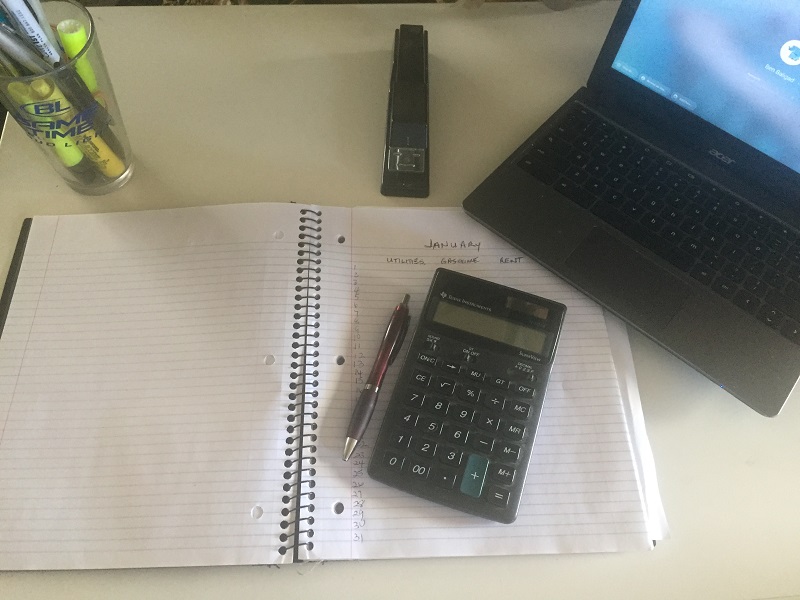A financial diary can be a valuable tool for tracking your expenses, budgeting effectively and achieving financial goals. It acts as a personal record of your daily transactions, income sources, savings milestones, and investment decisions.
If you are interested in sharing your insights on financial management or offering tips on how to maintain a successful financial diary, you can submit a guest post on our platform. We welcome guest posts on finance for free. Guest posts should provide valuable information and practical advice to readers looking to enhance their financial literacy and take control of their finances.
Why Keep a Financial Diary?
One of the primary reasons why businesses keep a financial diary is to track their spending. By diligently recording every expense, whether it’s for supplies, utilities, or employee salaries, businesses can have a clear overview of where their money is going. This helps them identify any patterns or trends in their spending habits and make adjustments as needed.
Just like businesses, the first step in keeping your finances in order is keeping a financial diary. For you to easily ensure that your economic position in the future is secure, one of the things you will need to do is make sure that you manage how you spend your money properly. There are things that you can do on your own to control your spending. One of the easiest of these is to simply keep a log of how you spend your money. This is a cheap but effective way for you to keep your finances in order.
Keeping a financial diary can be a valuable tool to track your spending habits and financial activities. By maintaining a detailed record of your finances, you can gain insights into your cash flow, identify areas of unnecessary expenditure, and make informed decisions about budgeting and saving.
Tracking Your Spending Habits
In addition to tracking day-to-day expenses, a financial diary also allows you to plan for expected spending. By noting down upcoming bills or payments that need to be made, you can ensure they have the necessary funds available when needed. This proactive approach helps you avoid late fees or missed payments that could negatively impact your credit.
Furthermore, keeping a financial diary enables you to plan for future expenses and set aside savings accordingly. By recording planned expenses such as vacations, weddings, cars, or even a new home.
Savings is another crucial aspect that a financial diary can help with. By regularly monitoring income and expenses through diary entries, you can identify opportunities for cost-cutting.. This practice promotes better financial discipline and enables you to build up reserves for unexpected situations or future investments.
Overall, maintaining a financial diary provides numerous benefits for you by helping you track your spending habits, plan for expected expenses, allocate savings effectively and maintain better control over your finances. It serves as an essential tool in promoting healthy financial habits and ensuring your long-term financial stability.
 Source: Flickr
Source: FlickrHow to figure out if you are living beyond your means
Keeping such a financial diary is not very hard, but it can give you a lot of insight into whether you are spending money properly.. The key is to enter all the purchases you have made every day. When doing this, you need to keep in mind that even the most minor purchases need to be recorded in the diary to give you an accurate idea of how your cash flow is. Once you do this for a few days (such as after a week) you can then go through your diary to find out more about how you spend money.
Maintaining a financial diary can be an effective tool for individuals who find themselves living beyond their means or struggling to manage their finances. In today’s consumer-driven society, it is easy to fall into the trap of relying heavily on credit cards and living paycheck to paycheck, which often leads to accumulating debt and financial stress.
By keeping a financial diary, individuals can gain a clearer understanding of their spending habits and identify areas where they can make adjustments. This includes tracking expenses such as bills, credit card payments, and other necessary expenditures. Additionally, it allows individuals to monitor their income and ensure that they are saving money regularly.
Creating a Budget
Creating a budget is a key component of maintaining a financial diary. It involves setting realistic spending limits for different categories such as groceries, entertainment, transportation, and more. By adhering to a budget, individuals can prioritize saving money and avoid unnecessary expenses.
Ultimately, the purpose of a financial diary is to provide individuals with greater control over their finances. It serves as a visual representation of one’s income and expenses while highlighting areas for improvement. By consistently updating and analyzing the entries in their financial diary, individuals can take proactive steps towards living within their budget, financial stability, and reducing debt.
 Source: Pexels
Source: PexelsDeciphering Your Spending Habits
When you do this, you will realize that most of the minor things you spend money on tend to cost you more in the long run. For instance, you could be the kind of person who has a soda every day after lunch. On the surface, this does not look like a major way of wasting money. However, when you record the amount of money you spend on sodas after a few days, you will quickly find out that it does add up. The fact that you don’t necessarily need to drink a soda every day makes it even worse since it means that you will essentially be throwing money down the drain.
A financial diary serves as a valuable tool for individuals to track and analyze their spending habits. By recording daily expenses and income, individuals can gain insights into their financial patterns and make informed decisions about budgeting, saving, and investing. Keeping a financial diary allows individuals to monitor their spending habits systematically. By documenting every purchase, from small daily expenses to larger investments, individuals can identify areas where they may be overspending or where they can cut back. This awareness enables them to make necessary adjustments in their budgeting and prioritize their financial goals.
Moreover, a financial diary provides a comprehensive overview of one’s income and expenses over time. By reviewing this information regularly, individuals can identify trends or patterns in their spending behavior. This knowledge empowers them to make more informed choices about how they allocate their resources.
Conclusion
A financial diary serves as an accountability tool. By recording every transaction, individuals are less likely to engage in impulsive or unnecessary purchases. The act of documenting each expense encourages mindfulness and conscious spending habits.
The diary is very important since it acts as a better pointer as to what you need to do to control spending. This is just the first step in controlling your spending. The next big and important step is to create a budget. A budget enables you to plan and predict what you can and cannot afford, big or small. Businesses, big and small use it, and there is no reason that you can’t also.
In conclusion, maintaining a financial diary is an effective means of monitoring and analyzing one’s spending habits. It helps individuals gain insights into their financial patterns, make informed decisions about budgeting and saving, and cultivate responsible money management practices.
